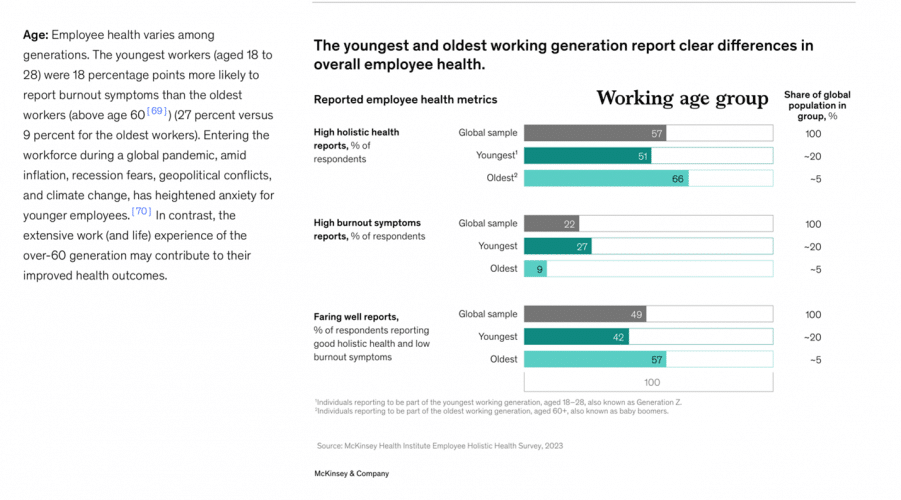Holistic Health Focus at Work
Randy Wolken, President & CEO
As adults, we spend most of our lives at work. This means that employers have a unique opportunity to enhance their employee’s holistic health. Holistic health is an approach to wellness that integrates all aspects of individuals by considering the connection between physical, mental, social, and spiritual health. However, to enhance holistic health, we need to assess how to embrace the concept at our places of work.
Recently, McKinsey & Company completed a survey of 30,000 employees worldwide. In it they explored how these employees perceived their health as well as how workplace factors could impact mental, physical, social, and spiritual health. Work can and should enhance health, however, for a large portion of employees, it doesn’t. In the McKinsey Health Institute survey, only 57 percent reported good holistic health, with essential differences in holistic health and burnout symptoms found across different industries and demographics. As you can see from the chart, one of the main findings of the survey is younger employees report lower levels of holistic health.

Multiple trends in our workforce are vital to examine: more people working today than ever before, an aging population living and working longer, and escalating levels of burnout. The current state of the workforce, coupled with these trends, demands a rethink of employee health to avoid a potential crisis. A healthy workforce is a strategic necessity and a substantial business opportunity.
Investing in employee health and well-being is increasingly important for attracting talent. Research from Saïd Business School at the University of Oxford, found that for many employees, factors contributing to their well-being—such as mental and physical health, work-life balance, and job satisfaction—are as crucial as traditional incentives such as salary. This is especially important for younger generations in the workforce. The McKinsey Health Institute survey of more than 42,000 respondents found that at least a third consider physical, mental, social, and spiritual health resources when choosing an employer, with Gen Z respondents and those with lower mental health scores, giving a larger weight to mental health benefits.
Employers also need to consider how to promote the health of older employees. Increases in life expectancy and advances in healthcare will extend working lives. It’s expected that by 2050, about 30 percent of the global workforce will be over 50 years old. Consequently, public and private sector organizations should expect an increasingly multigenerational workforce and tailor their health and well-being programs accordingly.
This study has much to teach us about enhancing holistic health in the workplace. I recommend reading this report from McKinsey & Company and having a discussion within your organization on ways to enable healthy work habits and decrease items that diminish worker health. Doing so will increase your employee’s satisfaction and overall success.